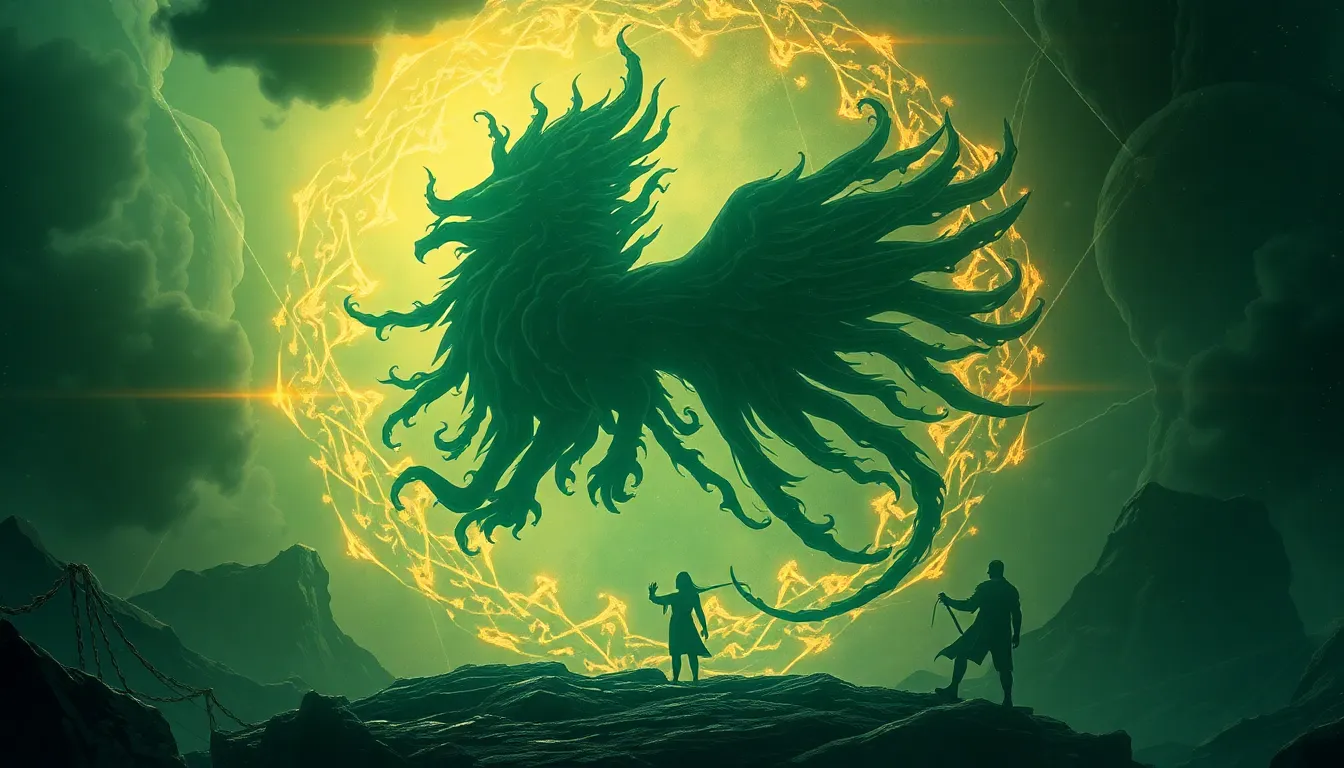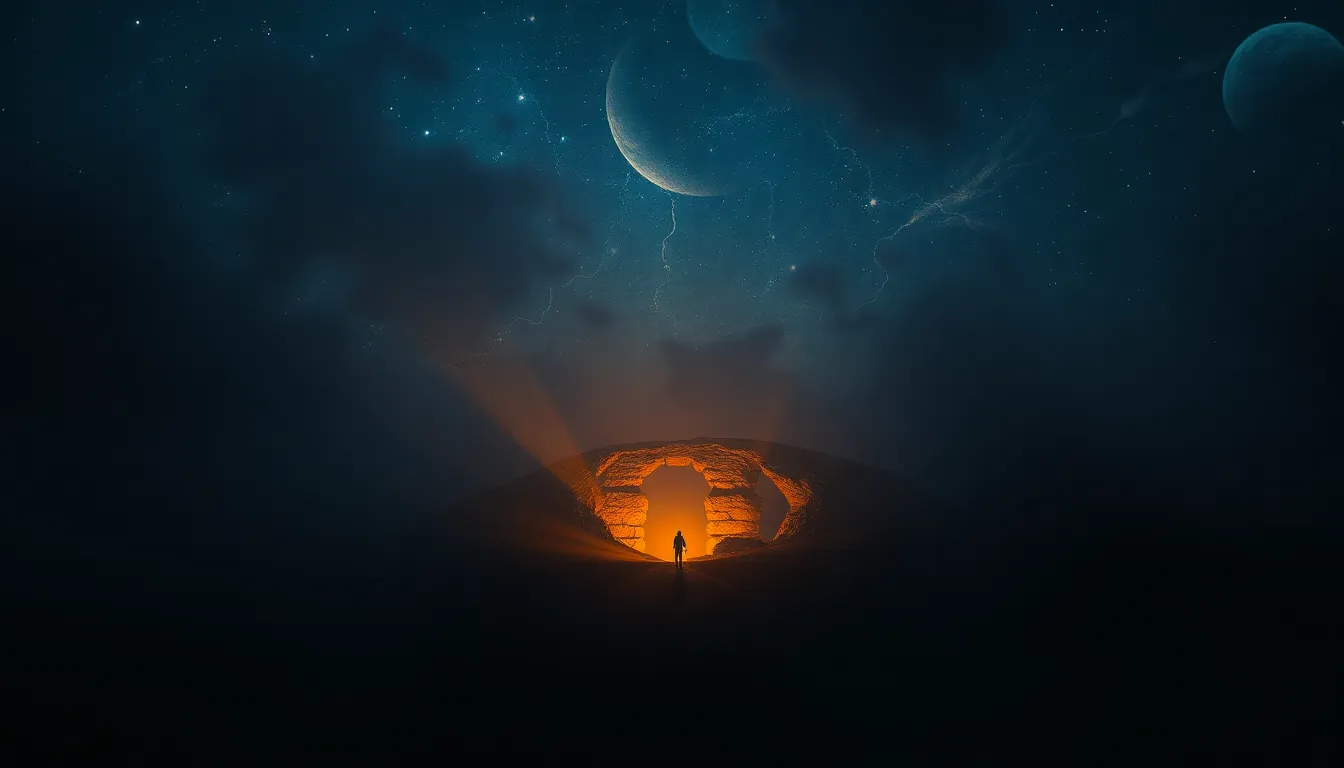Moral Myths and the Nature of Freedom: Lessons from Legends
Introduction: The Intersection of Myth and Morality
Moral myths are stories that convey ethical lessons and shape our understanding of right and wrong. They are deeply embedded in the cultural fabric of societies, serving as a bridge between ancient wisdom and contemporary moral dilemmas. Freedom, in moral contexts, often refers to the ability to act according to one’s values while considering the ethical implications of those actions. This article explores how legends and myths provide insight into moral values and the nature of freedom, offering timeless lessons that resonate even today.
Understanding Moral Myths: Definitions and Functions
Moral myths can be defined as narratives that illustrate ethical principles, often personified through characters, events, or divine interventions. These myths exist in various cultures, each providing distinct lessons tailored to their societal contexts. The functions of moral myths include:
- Shaping societal values by embodying cultural norms and expectations.
- Providing frameworks for ethical education, guiding individuals in making moral choices.
- Facilitating community cohesion through shared beliefs and values.
Through the stories passed down generations, moral myths serve as tools that cultivate a moral compass in individuals and societies alike.
The Concept of Freedom: Historical Perspectives
The idea of freedom has evolved from ancient philosophies to modern interpretations. Initially, freedom was often understood as the absence of external constraints, a notion known as negative liberty. In contrast, positive liberty emphasizes the ability to act in accordance with one’s true self and fulfill one’s potential. Throughout history, various philosophers have contributed to this discourse:
- Aristotle’s notion of eudaimonia, where true freedom is achieved through virtuous living.
- Jean-Jacques Rousseau’s belief in social freedom that promotes collective well-being.
- Isaiah Berlin’s distinction between positive and negative liberty, highlighting the nuances of each perspective.
Moral frameworks are essential in defining freedom, as they dictate the boundaries of acceptable behavior and the responsibilities associated with exercising freedom.
Legends as Reflections of Moral Dilemmas
Legends often encapsulate moral dilemmas, showcasing the complexities of ethical decision-making. For instance, in Greek mythology, the story of Antigone portrays the conflict between familial loyalty and state law. Similarly, Norse legends highlight the struggle between personal honor and communal responsibility. Here are a few prominent legends from various cultures:
- Prometheus: The Titan who defied Zeus to bring fire to humanity, representing the quest for knowledge and the consequence of rebellion.
- Hiawatha: An Indigenous hero who embodies the values of peace and unity, navigating the moral complexities of leadership.
- Thor: The Norse god whose adventures often reflect the tension between duty and desire, underscoring the weight of moral responsibilities.
Each of these legends imparts essential moral lessons, illustrating the intricacies of human existence and the choices we confront.
The Hero’s Journey: Freedom and Moral Responsibility
The archetypal hero’s journey is a prominent theme in myths, symbolizing the quest for freedom while grappling with moral responsibility. Heroes like Odysseus, King Arthur, and modern interpretations like Harry Potter reveal the tension between personal desires and the obligations to others. Key aspects of this journey include:
- Confronting external challenges that test moral convictions.
- Making choices that impact not only oneself but also the community.
- Learning and evolving through trials, ultimately achieving a deeper understanding of freedom and responsibility.
The hero’s journey serves as a reminder that freedom is not merely the absence of constraints but often entails embracing responsibilities that come with it.
Moral Myths and Social Constructs of Freedom
Moral myths significantly influence societal norms concerning freedom. They shape collective consciousness and behavior, reinforcing or challenging existing social constructs. For example, the legend of Robin Hood has been reinterpreted in modern contexts to address issues of social justice and economic inequality. Additionally, storytelling plays a crucial role in:
- Preserving cultural identities and values.
- Encouraging empathy and understanding across diverse groups.
- Promoting critical discussions about freedom and morality in contemporary society.
This ongoing dialogue between ancient legends and modern interpretations enriches our understanding of freedom and morality.
Contrasting Views: Freedom vs. Moral Constraint in Legends
Many myths explore the struggle between freedom and moral constraints, illustrating the difficult choices individuals face. Characters like Prometheus, who defied the gods for the sake of humanity, exemplify the moral costs of pursuing freedom. Such narratives provoke critical reflection on the societal implications of choosing freedom over moral obligations. Key themes include:
- The repercussions of prioritizing personal freedom over communal well-being.
- The moral dilemmas faced by individuals in positions of power and influence.
- The balance between individual rights and societal responsibilities.
These contrasting views invite discussions on the true nature of freedom and the ethical considerations that accompany it.
Lessons from Legends: Contemporary Relevance of Moral Myths
Ancient legends continue to inform modern ethical dilemmas, providing insights into contemporary issues such as civil rights, personal liberties, and social justice. The moral myths we revisit today highlight essential questions about freedom, including:
- How do we balance individual freedoms with the needs of the community?
- What lessons can we learn from historical struggles for freedom?
- How can moral myths guide us in addressing modern challenges?
The relevance of these myths emphasizes the importance of understanding our past to navigate the complexities of our present and future.
Critiques of Moral Myths: Challenging Traditional Narratives
While moral myths hold significant value, they are not without critique. Feminist, post-colonial, and critical theories challenge established narratives, prompting re-evaluations of traditional legends. These critiques highlight:
- The need for inclusive narratives that reflect diverse experiences and perspectives.
- How some myths perpetuate harmful stereotypes or social injustices.
- Examples of alternative narratives that promote different understandings of freedom, such as those emphasizing collective rather than individual liberty.
Such critiques encourage a more nuanced understanding of moral myths and their implications in shaping our views on freedom.
Conclusion: The Enduring Power of Moral Myths
Moral myths remain a powerful tool for exploring the nature of freedom and the ethical responsibilities that accompany it. By examining legends from various cultures, we gain insights into the complexities of moral dilemmas and the enduring relevance of these narratives in contemporary society. As we continue to navigate the challenges of freedom and morality, revisiting these myths can inspire us to reflect on our values and the impact of our choices on ourselves and our communities.



